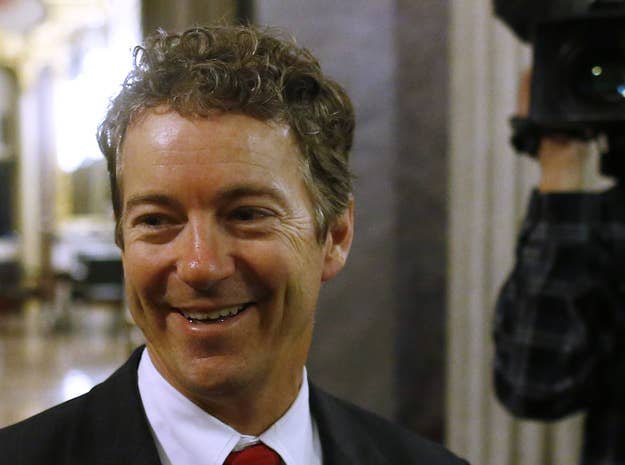
WASHINGTON — Rand Paul defended the appearance he made at Howard University last week, saying he wasn't trying to teach black students about their own history and that the "left wing media" had misrepresented his speech.
At a breakfast held Wednesday by the Christian Science Monitor, Paul said it was "unfair" how the media had portrayed the speech, which was by and large appreciated by the students in attendance — even if they said they still would never become Republicans.
"I thought my reception at Howard was much better than my reception by the left-wing media," Paul said. "Howard I think was very fair."
"I was completely blasted by some of the left-wing for being out of touch and knowing nothing about the southern strategy and that's why African-Americans became Democrats. Which is flat out wrong. Look at the facts," he said.
Paul argued that the real shift in black voting habits had come in the 1930s.
"So for people to tell me the reason Republicans are hated is because of the southern strategy — it may have cemented the change, but the change did happen in the Great Depression," Paul said. "I said this in my speech and most people ignored it, but the change happened among whites and blacks. A lot of people switched their registration in the 1930s."
He continued: "You get to the 1964 Civil Rights Act, you've got 90 percent of African-Americans voting for LBJ, the southern strategy by most reports is after that, not before that. So it solidified, but it didn't cause the change. The people who write that are just factually wrong."
Paul said he would "continue" to do more outreach to minority groups. He also called the speech "the beginning of a conversation."
He additionally argued that the charge that he had tried to over-explain black history to students at a historically black college was overblown. "I think that was misreported. I simply said something, and it was something where I was asking a question. This was the first time I was going to a historically black college."
"I said, did they all know that the NAACP was founded by Republicans," he explained. "And in retrospect it sounds like it is a dumb question, but it's like, Republicans haven't been going to Howard for 20 years so by going there I did learn something, and I did learn that everybody there knows, and I left knowing that."
"I think the vast majority of the public, 90 percent of the public has no idea that Republicans founded the NAACP," he continued. "Some people think it's presumptuous and we shouldn't be talking about it. Well, we need to talk about it. Then I messed up on the Senator's name, Edward Brooke, and it's like, I'm human, I forgot his name. I knew his name but I forgot it. It wasn't like it was in my speech and I forgot it, it was in question and answer."
Black history "is all of our history," he said. "There were whites involved too, with abolition and with emancipation."
Paul said he was "a little sensitive" to some of the criticisms about the speech.
"I think some of it's fair, some of it's unfair," Paul said of contemporary opinion on how the Republican party handled race in the latter half of the 20th century. "People have told me they think that the Willie Brown ad was racist, people have told me they think Reagan talking about welfare queens was racist," he said. Reporters then corrected him, since he was referring to the famous Willie Horton ad, not to the former mayor of San Francisco.
"See, I do make mistakes," Paul joked.
"But I think there is some basis in argument of some of the tactics through the years," Paul said. "And the other thing is, whether it's fair or not fair, there's a perception that Republicans don't like people of color. It's not true, but that's the perception we have to overcome."
